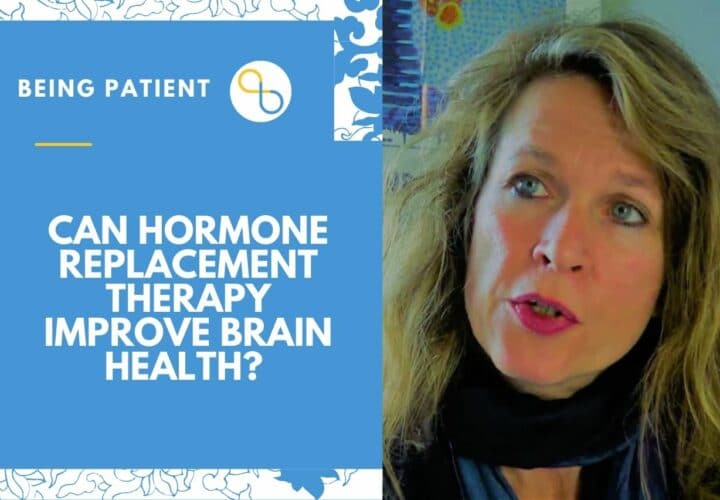A new study found that carriers of the APOE4 gene who start hormone replacement therapy earlier during menopause tended to score higher on cognitive tests.
During menopause, the levels of the sex hormone estrogen drop leading to a group of symptoms — confusion, forgetfulness, difficulty focusing on a task — sometimes called menopause brain. A new study provides evidence that hormone replacement therapy (HRT) for estrogen is linked with improved cognition for some women with the APOE4 gene.
Surprisingly, there are important links between estrogen and brain health — it is key for protecting the brain by keeping its immune cells working properly.There’s even evidence that menopause and Alzheimer’s may be related. This may explain in part why women are twice as likely to develop Alzheimer’s. Along with other early interventions, a hormone infusion at just the right time could be the boost that the brain needs to protect itself against cognitive decline. A study published in January 2023 in the journal Alzheimer’s Research & Therapy looked at 1,178 healthy women over the age of 50 to test this question.
The women in this study received a series of memory tests and underwent brain scans. Their analysis showed that women who carried the genetic risk factor APOE4 and were also taking estrogen did better on a memory test. The group of women who received HRT the earliest performed best of all. The parts of the brain that are involved in memory were also larger in size in these women.
The research was led by Anne-Marie Minihane, a professor from University of East Anglia’s Norwich Medical School. “In addition to living longer, the reason behind the higher female prevalence is thought to be related to the effects of menopause and the impact of the APOE4 genetic risk factor being greater in women,” Minihane said, adding that 25 percent of women in the UK are carriers of the gene.
The study did not, however, show that HRT could reduce the risk of Alzheimer’s.
“The problem is, we have observational data showing us that women who use hormones are already often protected against dementia,” Dr. Eef Hogervorst, a professor of biological psychology at Loughborough University said a Being Patient Brain Talk. “They have a lower risk of heart-related health conditions, which reduces the risk of dementia.”
Hogervorst added that women who are in a position to take HRT early often have more money and access to better food, medicine, and other interventions.
But if you’re experiencing the symptoms of menopause, should you try estrogen just in case? While Hogervorst advocates that women should take HRT if symptoms are causing them discomfort, she adds that it doesn’t work for everyone.
“They certainly will help quite a lot of women, about 50 percent,” she said. “They feel a lot better, their mood improves, and their concentration improves.”
Is HRT always good for brain health?
So, is HRT good for brain health? The jury is still out: Previous studies have found that HRT may actually worsen brain health.
One recent study looking at HRT suggested that the treatment may be linked with depression — a risk factor for developing dementia.
However, Neuroscience professor Ciara McCabe at University of Reading cautioned that large studies that look across decades of medical records don’t necessarily show direct causal links between HRT and harmful outcomes like cancer or depression. When the studies are picked up by media outlets, they may scare some women away from getting treatments that they need.
“Use of HRT declined by as much as 80 percent in 2002 when a study linked HRT with breast cancer and heart disease,” McCabe wrote in an editorial about her research. “Although this study is now considered flawed – and other studies have since shown that HRT is actually beneficial for women’s cardiometabolic health – the fear created by media coverage of it left a legacy of anxiety and confusion that still persists surrounding HRT today.”
Can HRT stop cognitive decline?
Is HRT effective to halt cognitive decline? The jury is still out. While HRT may be effective for some of the symptoms of menopause, scientists still don’t know its exact relationship with Alzheimer’s and other forms of dementia.
“The effects of HRT in this observation study, if confirmed in an intervention trial, would equate to a brain age that is several years younger,” the first author on the study Dr. Rasha Saleh, from University of East Anglia’s Norwich Medical School said.
To see whether supplementing estrogen could protect the brain for carriers of the APOE4 gene, experimenters would need to design a new clinical trial.






